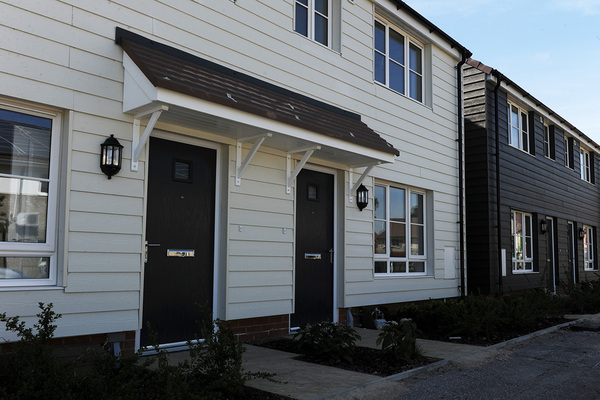You are viewing 1 of your 1 free articles
Business time
Surely George Osborne can’t ignore the call from business leaders to build more affordable homes
Desperate times call for desperate measures - hence speculation that George Osborne is, once again, eyeing the housing sector to find the £2bn of savings that he needs in the wake of his defeat on tax credits.
Reports suggest the chancellor has identified housing benefit as a target for further cuts. Jules Birch has written a superb analysis of the options available to the chancellor.
All of these options look grim - especially for social landlords, which are already struggling to cope with the damaging 1% rent cut and extension of Right to Buy announced in the summer. It is clear that if Mr Osborne pursues the option of further cutting landlords’ income, the ultimate cost will be fewer badly needed affordable homes.
This is an issue that Mr Osborne can no longer afford to ignore. As we reveal this week, the lack of genuinely affordable accommodation in London, where the housing crisis is most acute, is starting to damage the capital’s global competitiveness and forcing some of the city’s largest employers to act.
According to campaign body Fifty Thousand Homes, the eye-watering squeeze on people working in the city is costing the economy more than £1bn a year.
Companies like Deloitte say that even staff on salaries of £80,000 a year are struggling to save a deposit for a house, and need help. Because of this, as Inside Housing reveals this week, the company is leading a move to intervene on behalf of staff - not just lower paid graduates - and broker preferential rental deals with developers.
A host of big-name global firms are now exploring similar options. There is even talk of employers becoming Cadbury-style landlords to their employees.
This might sound far-fetched were it not for the fact that Boris Johnson is considering a similar idea. As we investigate, the mayor is exploring the concept of employer-sponsored intermediate housing - which effectively means asking businesses to pay for building shared ownership housing in the capital in return for rental income and nomination rights. This idea may work for some companies, but not all. It is a sticking plaster, not a solution.
Ultimately, if further cuts force landlords to further reduce the amount of affordable housing they build, then, one way or another the cost will be passed on to businesses in the capital.
Desperate times may mean desperate measures, but while Mr Osborne may be able to ignore the housing sector’s protests, he does not have the luxury of ignoring the growing discontent from business leaders.









